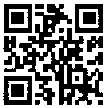OK, so that sounds easy, doesn't it?!
Without a lot of classroom experience, a teacher as examiner will fumble the cards every time, guaranteed. It is crucial that examiners get into a good routine, so that they are able to maintain their teacherly, cheerful, encouraging personality with the (young, nervous, non-native) candidate. The candidate does not need to see the strings the examiner is pulling, but be put into a relaxing, smooth, flowing little mini-lesson. Remember the child's name & use it; don't repeat answers (so take off the 'teacher hat') or make judgmental comments; don't panic or speak too fast; smile, nod, keep your elbows in etc.
Every new examiner comes to training expecting to be shown how to assess; few actually realise the key role of the examiner is to actually set up the candidate to perform. "The script, Michael, it's all in the script" (with apologies to Kenny Everett). In YLE, particularly Starters, candidates are most likely taking their very first genuine English test - certainly the first one with an 'unknown' person assessing their speaking. This is truly intimidating, isn't it? A good examiner will have a child in and out of the examining room an a wave of positive vibes and chuffed with "Can do" vibes. And why not? Seriously, why shouldn't a child enjoy showing off their skills?
 So a large part of a regular morning, for me, training new YLE examiners is a bit of boot camp - stripping back the teachers' habits and tics until we get to polished rubric delivery. Nothing more, nothing less. Pictures in the right place, at the right time. Heads up focus on candidate, know what you are going to do next. Have the back up question at your finger tips if necessary, and use it appropriately. If you are not looking at the candidate, you will miss their facial reactions to questions. As an experienced teacher, these are the signs we recognise day in, day out, about perception/reception. This is what our examiners bring to the table.
So a large part of a regular morning, for me, training new YLE examiners is a bit of boot camp - stripping back the teachers' habits and tics until we get to polished rubric delivery. Nothing more, nothing less. Pictures in the right place, at the right time. Heads up focus on candidate, know what you are going to do next. Have the back up question at your finger tips if necessary, and use it appropriately. If you are not looking at the candidate, you will miss their facial reactions to questions. As an experienced teacher, these are the signs we recognise day in, day out, about perception/reception. This is what our examiners bring to the table.The 'other half' of the examiner's role is the assessment bit. Importantly, examiners must get into the routine of couching their assessment, comments, interpretations of performances to Cambridge ESOL's assessment scales.
"I think that boy had a bad accent" or "That girl was so sweet", "That boy couldn't say 'elephant' " or "That girl wasn't very good"....and similar reactions to sample videos have no place in our "Can do" analysis. Candidates are not penalised for mistakes they are making if they try to extend an answer, they are not penalised for offering a different answer than the one scripted (which is merely a suggested answer), they are not penalised for 'sounding French' or not 'looking as cute as the Italian girl' etc.

On Sunday my new team coped with the ridiculous situation where the school we were expecting to conduct training at was locked up. The school was completely unaware of the plan. Not good. Thankfully, after a subway ride to Lesley Ito's school in the city and a late start, we did eventually manage to tackle our three levels (Starters, Movers & Flyers). Thank you all for keeping the faith, and for accepting the cramped facilities for viewing the DVDs - Kim was half in the fridge! I was very happy with my new team's performance...they took in what they were asked to do, and accepted my (mostly) constructive tips! Experience will out, and today we had a fine talent pool to draw from.
Well done Kim, Bonnie, Alex, Andrew, Cora and Lesley. Thank you all for making your journeys and for being flexible; thank you Lesley for taking us in and for lighting the YLE flame in Nagoya. Who's next?!




A wonderful blog post providing an insight into assessment and examinations with Cambridge ESOL. It will be an interesting year for assessment with Cambridge as they are going to be moving their training, coordination and marking online. They are also going to offer the CELTA online this year as well.
ReplyDeleteI'm currently writing an ELF essay and the thing that I've noticed from my reading is that intelligibility and discourse strategies is the most important aspects for non-native speakers of English.